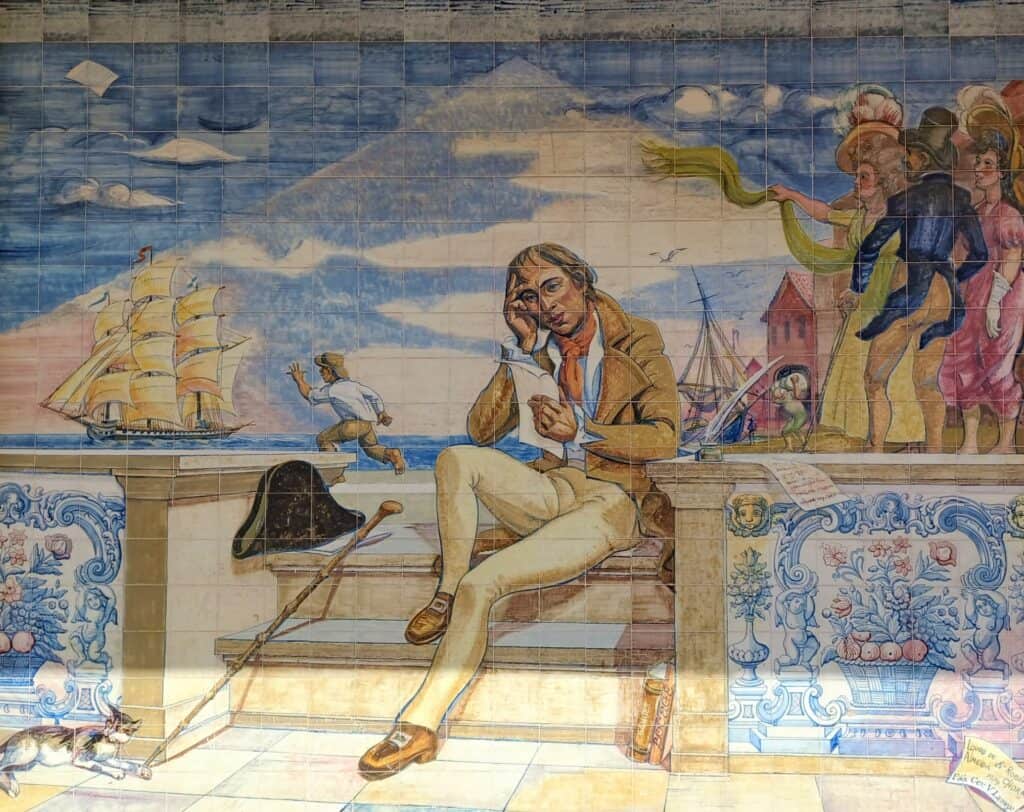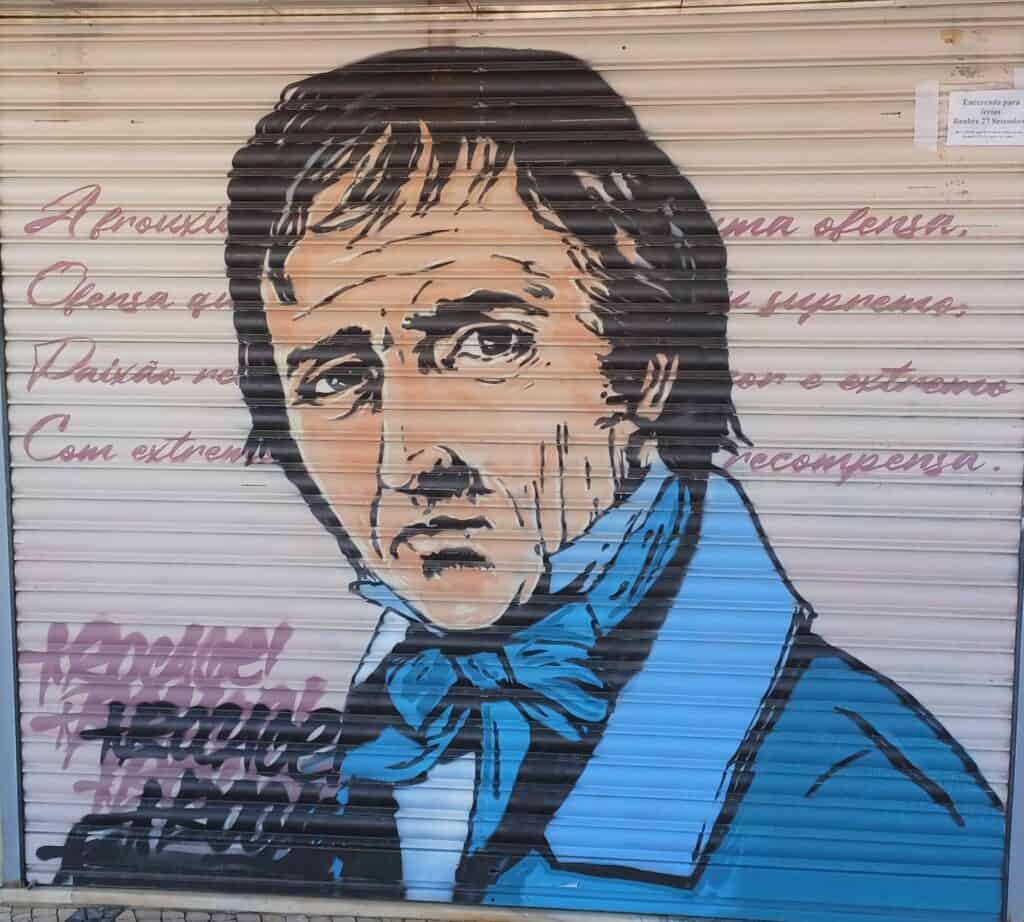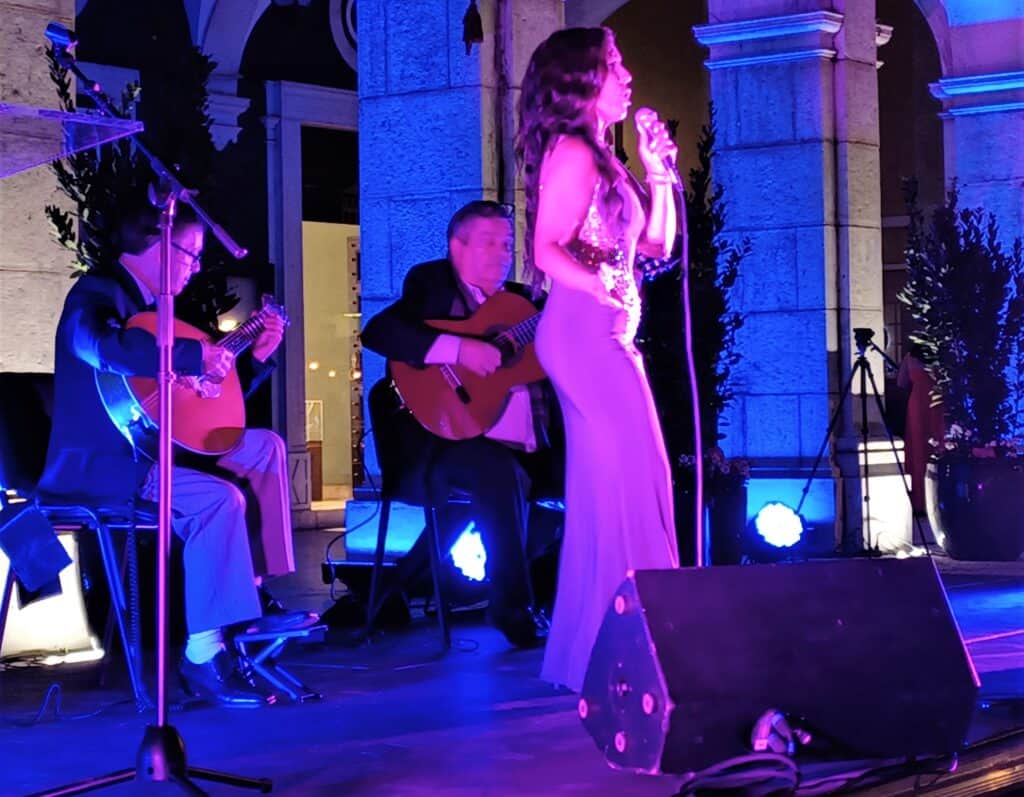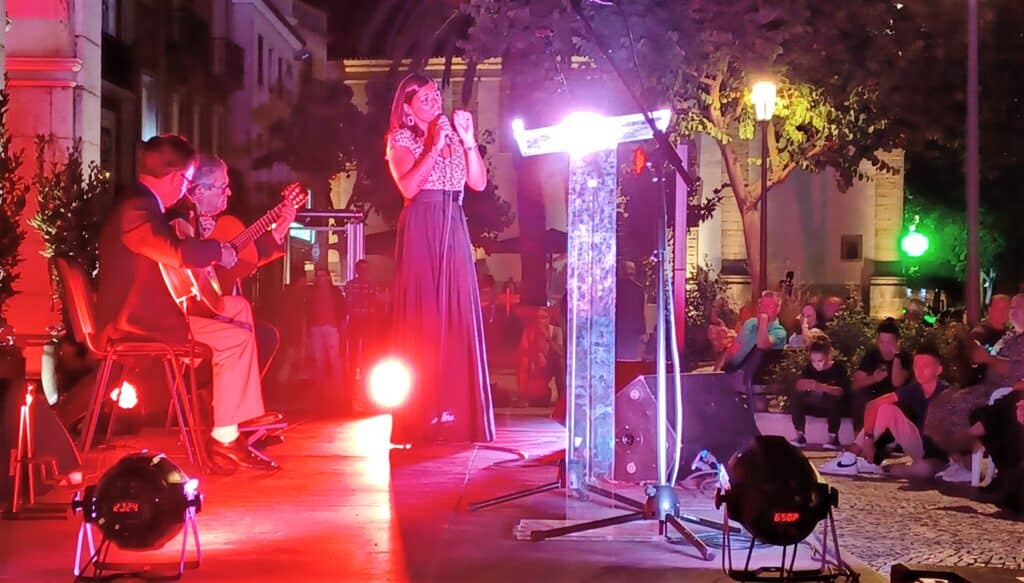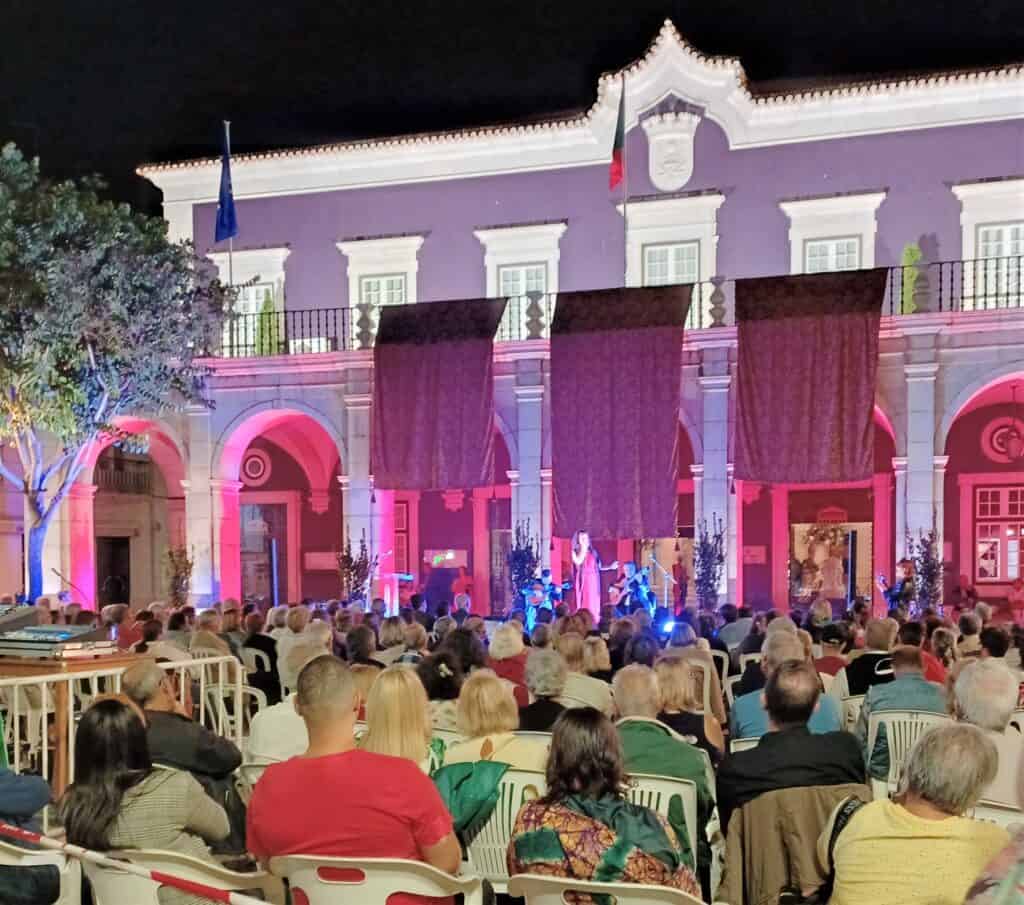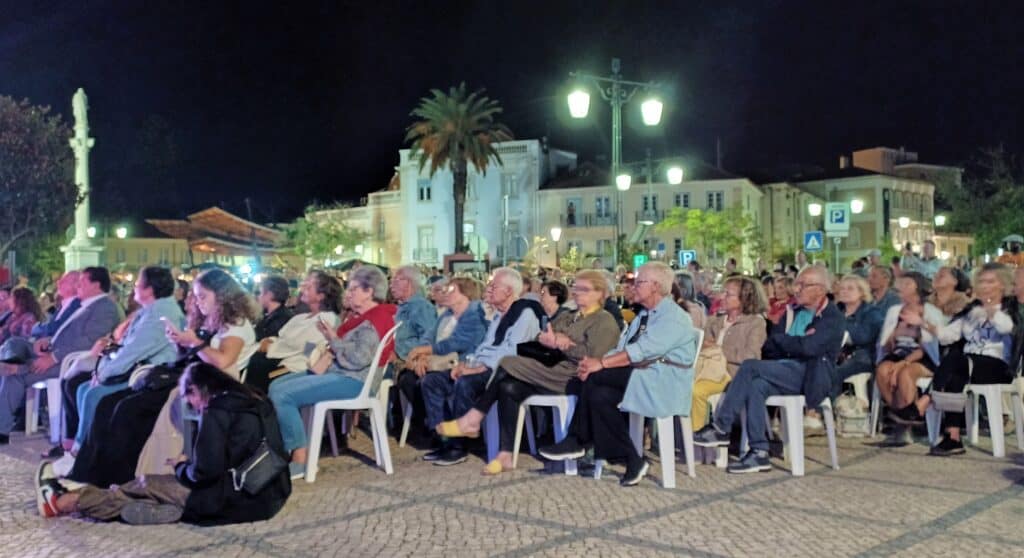Every year on September 15th, Setubal celebrates the birthdate of its most famous poet.
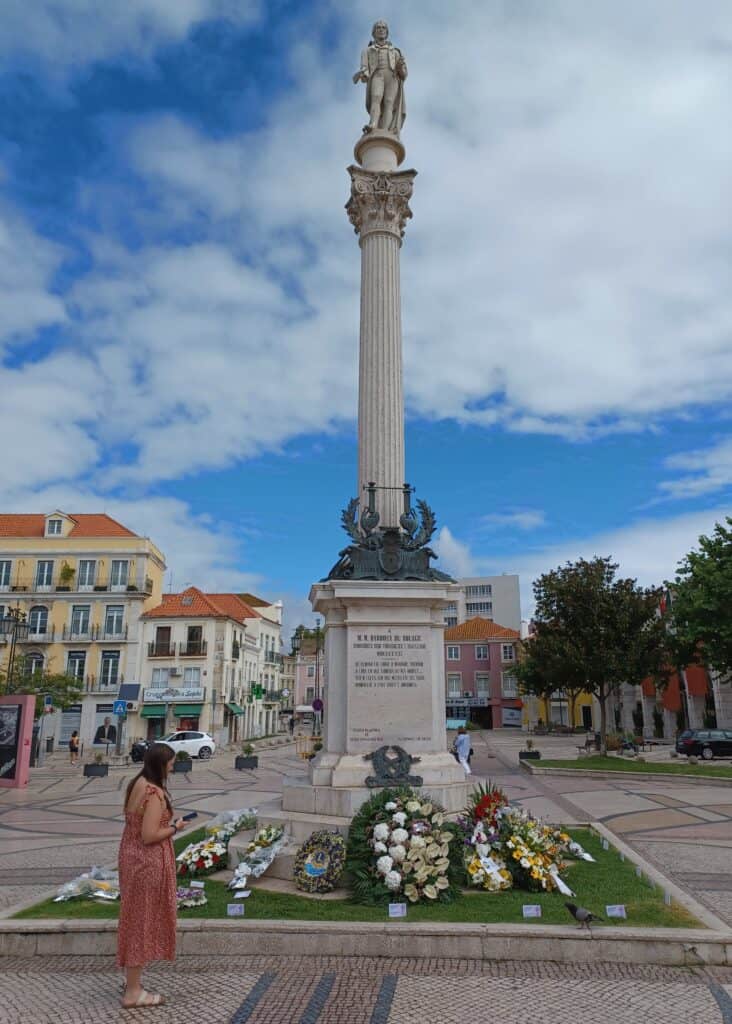
Manuel Maria Barbosa du Bocage
Manuel Maria Barbosa l’Hedois du Bocage was born in Setubal in 1765. He became so famous for his poetry and satire that he was known simply as Bocage. His image and poems can be seen plastered on buildings all over the city.
Bocage joined the Portuguese navy at a young age and sailed to Brazil and later to India. During this time he wrote satires and Brazilian-style poems called “Modinhas.” These works garnered Bocage acclaim back home.
Though he was widely popular, Bocage lived as a bohemian and vagabond, often relying on the generosity of friends for food and a roof over his head. The poet ran afoul of the local magistrate in Setubal who claimed his verses were aetheistic (gasp!) or worse, pro-French (double gasp!). Bocage wound up in jail. There, his already poor health deteriorated even more.
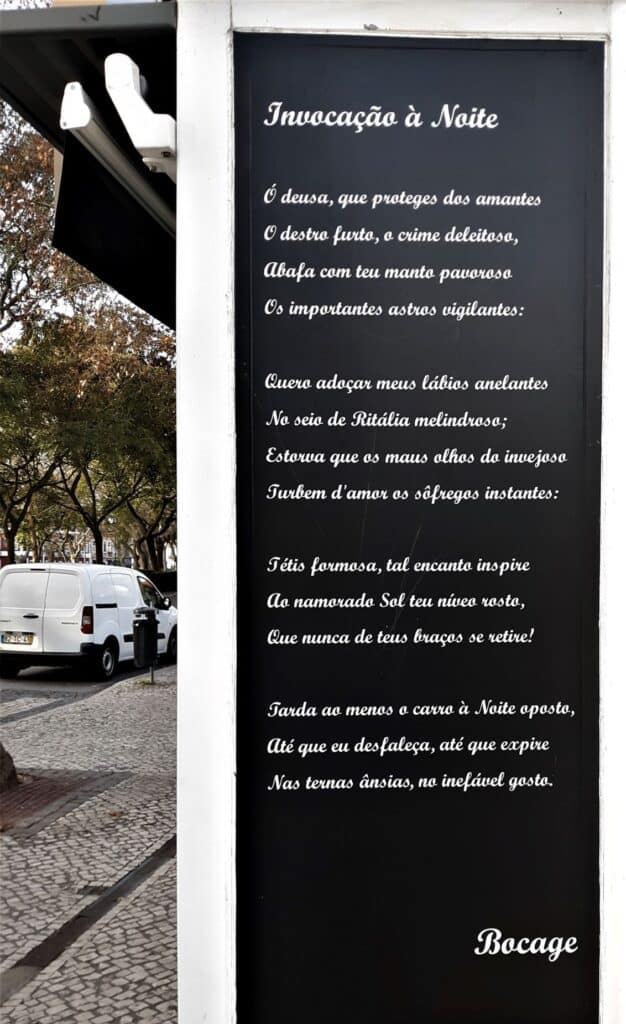
After his release, Bocage seemed to distance himself somewhat from with wild ways of his youth. He wrote many tender poems during this time.
Bocage died of a brain aneurysm in 1805 which, some say, was brought on by a severe case of syphilis.
Praça de Bocage
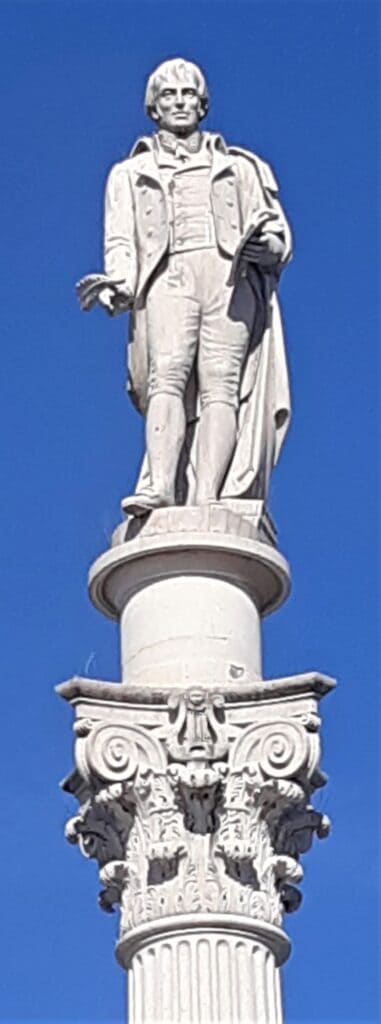
In 1871, a monument, capped with a statue of Bocage was unveiled in Setubal. It sits in the center of the city’s liveliest square, Praça de Bocage, named after the poet. The square is lined with cafes and bars.
The town hall is also on Praça de Bocage. Surely, Bocage would see the delicious irony of the city’s main government building being on a square dedicated to a man who was persecuted by that very government.
Bocage Day
The people of Setubal love Bocage and the town takes every opportunity to play up its connection to the rouge poet. His face is plastered on the sides of buildings and he is the subject of azulejo tile murals in the city. There’s a pastry named after Bocage as well.
Reggie Jackson once said if he ever played in New York, they’d name a candy bar after him. He did and they did. I guess having a pastry named after you is the Portuguese equivalent.
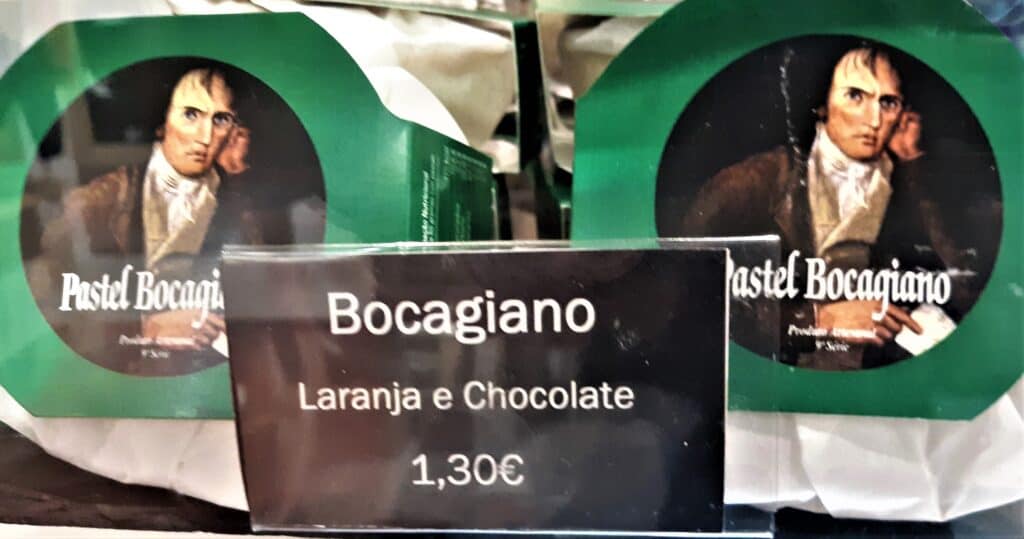
Every September 15th (the anniversary of Bocage’s birth) is a public holiday in the town of Setubal and many of the nearby villages in the Setubal District. Schools and public offices are closed as well as many local businesses. Even the famous Livramento Market is closed to honor Bocage!
Then, to cap the occasion, on the night of Bocage Day, there is a Fado concert on Praça de Bocage in front of the Town Hall.
The performers are all from Setubal and have been selected as the best Fado singers in the city that year through an intense competition. It’s great fun to watch the women (and men) perform on this acclaimed stage.
Of course, to me, an American struggling to learn the language, these songs seem quite foreign. However, it’s hard not to get caught up in the excitement when a Fado performer sings the first few words of a well-known song and everyone joins in!
About the Author

Brent Petersen is the Editor-in-Chief of Destination Eat Drink. He currently resides in Setubal, Portugal. Brent has written the novel “Truffle Hunt” (Eckhartz Press) and the short story collection “That Bird.” He’s also written dozens of foodie travel guides to cities around the world on Destination Eat Drink, including in-depth eating and drinking guides to Lisbon, Porto, Sintra, Monsaraz, and Evora in Portugal. Brent’s podcast, also called Destination Eat Drink, is available on all major podcasting platforms and is distributed by the Radio Misfits Podcast Network.

